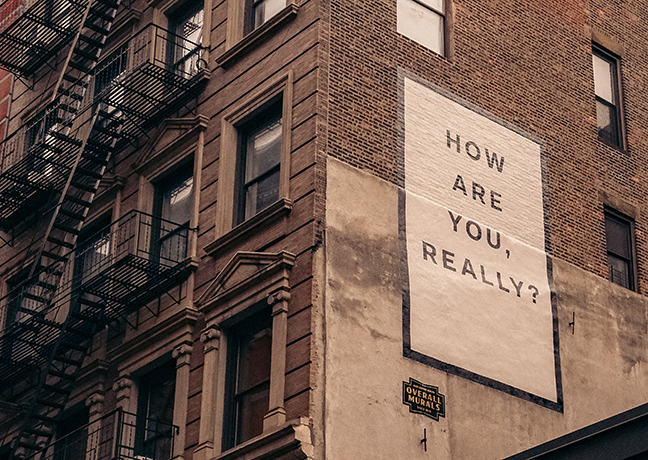My grandfather tried to throw himself off a British Merchant Navy ship in India, just before World War II broke out. A bunkmate had died, and he went to pieces. His own father, my great grandfather, happened to be the Captain in charge of the same ship. But rather than help his son over his suicidal nervous breakdown, great-grand-papa left my granddad to rot in an insane asylum run by the British Raj.
It’s a miracle granddad made it back to England alive, and I’m very lucky to be here in New York, really, with such ruthlessness and instability running in my genes. Such stories put the British “stiff upper lip” in its historical context. And they also explain why, as a campaigner, I’m so outspoken about the importance of maintaining one’s mental health for the long term in the fight for social justice. I do also sometimes wonder about the traumatic pressures on a man that would convince him to abandon his own son to a colonial psych ward. Shudder.
None of us is too strong to avoid going to pieces if we subjugate our personal wellbeing to a cause, just or otherwise. And I’ve worked with two clients over the last nine months that have had a transformative effect on my understanding of the importance of personal story and wellbeing:
- The first, Radical Health, is a Bronx-based B-Corp led by Ivelyse Andino, who’s a gender equity commissioner in New York City. She and her team bring a restorative justice and cultural healing lens to health equity work—whether that’s leading community conversations about opioid addiction in the Bronx, addressing the disproportionate deaths in New York maternity of Black and Brown women, or running restorative listening circles about health in small towns across America. Their new Radical Response app gives people good, reliable information about COVID-19 in plain language. When they ask how you’re feeling, today, it’s because they put people’s wellbeing and safety at the heart of their work.
- The second, Restoring Promise, is an initiative focused on young adults in the nation’s prison systems, spearheaded by MILPA, an indigenous collective in California, in partnership with the Vera Institute of Justice. Restoring Promise is, I would suggest, revolutionary because it chooses to trust the leadership of incarcerated people when it comes to healing the historic racism of America’s prison system. Even by conventional measures like reducing violence and recidivism, it’s been transformational.
Both clients often begin meetings with the “check-in” question. For a white guy from England, “how are you feeling?” can feel like a distraction, at first. But if you’re working to disrupt racist systems like American healthcare or its prisons, then organizing based on your partners’ emotional experience is the only place to start. It’s a good reminder.
On this note a great survey by The Works[1] recently looked at why communications professionals leave their jobs: lack of career progression, poor team and company culture, and poor management. Simply feeling terrible about work is probably a major reason, too, although perhaps that intersects with those other factors.
I ask myself “how does it feel to do this work?” whenever I’m deciding whether to lean in, or head for the door, these days. And if you value how it feels to do your work, then we’ll have a lot in common.
Until next time, don’t try to throw yourself off any boats. (And seriously if you’re thinking about it, call 1-800-273-8255. It’s not a joke.)
[1] https://the-works.co.uk/newsrooms/why-in-house-and-agency-professionals-really-leave-their-jobs


